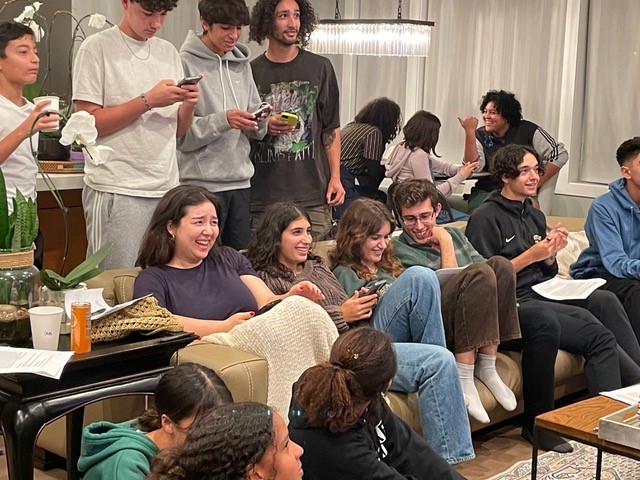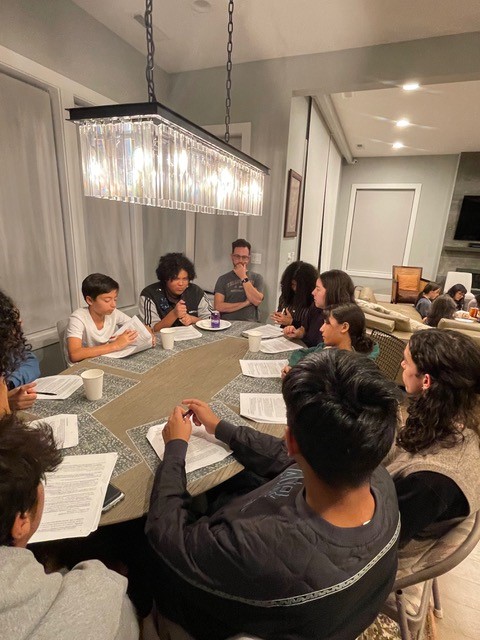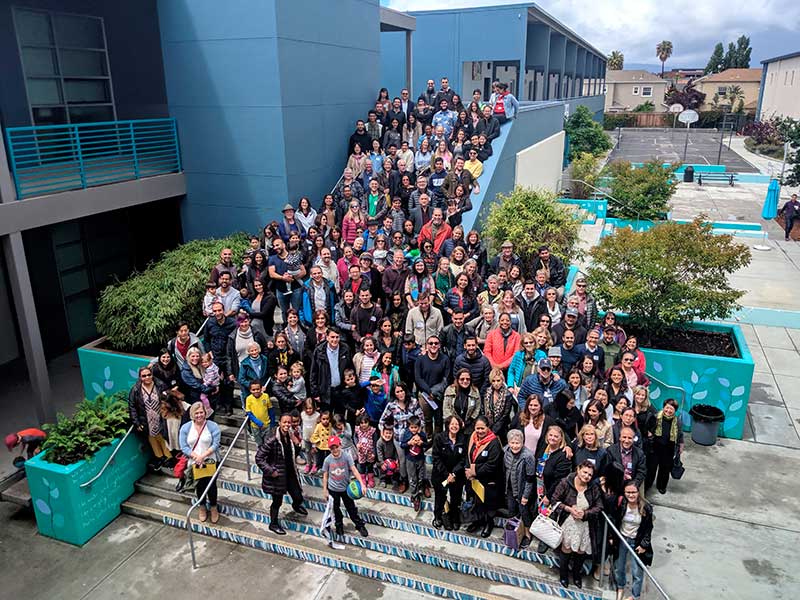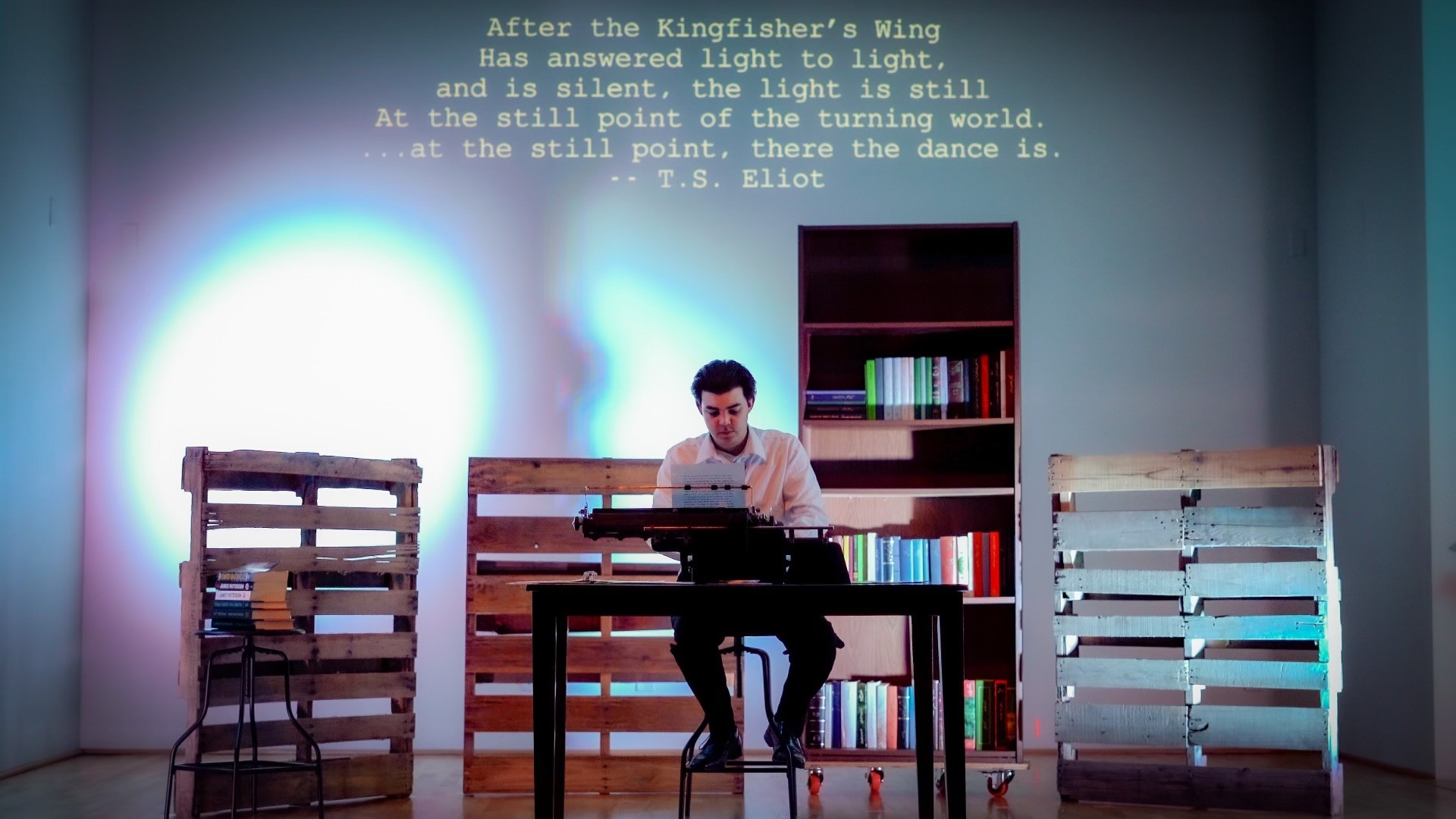
Washington youth delve into Bahá’í elections

By Henry Warren
Four gatherings. Three days. One September weekend. Fifty-eight young people from western Washington came together with shared curiosity anchored in a quest to learn about the nuances of Bahá’í elections—what sets them apart from other electoral processes and, significantly, why they hold importance for youth.
Helen Javid, of Seattle, serves the Bahá’í Faith as an Auxiliary Board Member alongside Josh Christy, Sarah Yun and Shokouh Pardakhtim. The four planned the youth gatherings in response to an appeal from the National Spiritual Assembly to advance the understanding and increase general participation in Bahá’í elections. They thought a group study would be a great way to lead into the October Unit Conventions, where Bahá’ís elect delegates to the National Convention held the following spring.

Javid says the youth “wanted to attend, engage and gain a deeper appreciation of the Bahá’í electoral process.” Some young people even drove over two hours to attend. “Many of the youth are already connected and have deep bonds, through involvement in the institute process, youth camps and ISGP [The Institute for Studies in Global Prosperity].”
Javid cites recent guidance from the Universal House of Justice, the international governing council of the Bahá’í Faith, when she says, “We are called to think about how consciousness is raised in a community about the spiritual principles underlying Bahá’í elections and how a new conception is formed of what it means for someone to be called to serve on an institution, and understanding grows of how the individual, the community and the Local Assembly, and its agencies relate to one another.
“We want to learn how we can connect more people, especially youth to this process,” Javid says.
The gatherings were hosted in four clusters in the greater Seattle/Tacoma metro area. Javid and her colleagues prepared a few youth facilitator teams to guide the study in large and small breakout groups at each gathering, each following the same format and study materials. Javid says the gatherings were intended for ages 15 to 25, but the few younger participants who showed up were very engaged.
The youth discussed what they knew or liked about the American elections and Bahá’í elections. “We want to explore with them what challenges arise in the process,” she says. Some challenges are understanding the new model of spiritually-based elections, others are practical.
Many youth didn’t know where or how to vote in Bahá’í elections, says Javid, “We wanted to demystify the process so we flipped open a laptop and walked them through the online voting process.”
Javid says that in one session, “one of the youth tested our knowledge with a quiz on Kahoot! [an online game-based learning platform] and everybody enjoyed the challenge.”
Adult Bahá’ís in good standing are eligible to take part in Bahá’í elections. In 2021, the voting age was dropped from 21 to 18. In the guidance announcing the drop, the Universal House of Justice stated,
“We have no doubt that Bahá’í youth everywhere who are of age will vindicate our confidence in their ability to fulfill ‘conscientiously and diligently’ the ‘sacred duty’ to which every Bahá’í elector is called.”
As a follow-up to the September weekend, nine youth decided to help share what they had learned. Since then, they have held eight gatherings with local communities to study the election materials.





